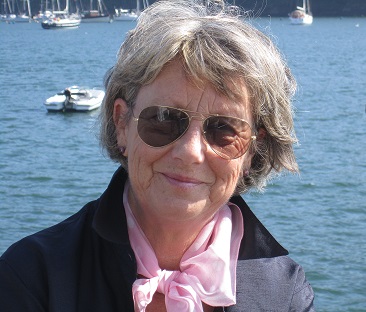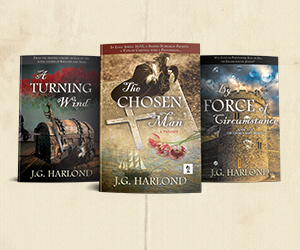A good part of my life has been spent packing boxes to move house, often from one country to another. My children were trilingual from a young age, having Spanish and English at home and learning to read and write in Italian. The advantage was that they acquired new languages easily. It was tough on all of us at times, but in the long run our peripatetic lifestyle was to our benefit. Being a teacher I was able to work in international schools, which led to writing school text books. When this workload increased, I gave up the day job to write full time.
One of my projects was a re-telling of Norse myths and legends for Penguin. This was subsequently cancelled, but, like other upheavals it worked to my advantage. I turned part of my background notes on the Norse Volsung Saga into a fantasy novel.
Important detail #1: Never delete early drafts of anything. One day those words may come in very handy. I am currently using material I created fifteen years ago in the sequel to The Doomsong Sword (2017).
Becoming a fiction author is one of the best and worst things I have ever done. On the one hand, it’s enormously satisfying, despite all the editing and re-writes, but for me there is a lot of stress once the final draft is complete. After the editing and proofreading stages of my textbooks, the publisher’s team took over cover design, promotion and marketing. This is something I didn’t take into account when I was looking for a fiction publisher. I assumed they would do the same: edit and proofread, give me time to make corrections, and my story would go into the sales channels without me being involved. Wrong!
Important detail #2 Traditionally published authors are expected to promote their work and themselves the way self-publishing authors do.
Becoming a hybrid fiction author happened more by chance than good planning. Having spent most of my working life teaching and writing about Literature with a capital L, I was dubious about my own narrative skills. Was I really good enough to be published? I’d been scribbling ideas for stories, bits of purple prose and snappy dialogue in notebooks since I don’t remember when, but finishing a full-length novel, and believing it was good enough for publication . . . That stayed my hand. I’m not gifted with self-belief and still suffer from imposter syndrome.
While we were living in Holland during the 1990s, I finished a full-length contemporary literary novel and sent it off to an agent, who told me what needed adjusting for publication. I set about doing this, but then we moved again, I lost focus, and the agent lost interest. The MS went in a drawer, then into an attic. My second attempt was historical fiction. It incorporated my lost agent’s advice, and my experience of living in Holland and Spain. The MS went through numerous drafts and eventually became The Empress Emerald.
It is said that a first novel is always autobiographical: this is largely nonsense, but we obviously draw on personal experience, and in this case, I was putting family upheavals to good use. My fiction incorporates aspects of my travels: I’ve either lived and worked somewhere, or been on an extended visit to just about every location. Plus, I do a lot of research and background reading for each epoch.
After the Empress Emerald (set 1900-1940), I started a linked trilogy about the protagonist’s ancestor, a wily Genoese rogue known as Ludo da Portovenere. The Chosen Man trilogy took years to complete, but I had a supportive publisher, who didn’t hassle me over deadlines, and perhaps more importantly, liked what I was writing. This makes a difference. Many outfits treat their writers as copy-suppliers and their novels as products.
The first Bob Robbins Home Front Mystery emerged from an early draft for something quite different (never delete anything) set in Cornwall. My MA dissertation was on WWII Home Front propaganda so I had accumulated knowledge to deepen the plot, but this story needed a local detective. In those days, retired police officers were called back into service to replace younger men who’d joined up. Fortunately, my grandfather had been a ‘Special’ during the war, so I had some anecdotes to work on. This is how dumpy, grumpy DS Bob Robbins came into my life – and decided to stay.
After the first in this series, Local Resistance (about the ultra-secret British resistance groups), I decided to go solo, in the hope of getting more for my writing than standard publishers’ royalties.
Important point #3: Fiction publishers cover editing and book design costs; some do more marketing than others; some pay an advance (which may have to be paid back if the book isn’t a success). Self-publishing can get expensive. In my experience, choosing between trad or indie is a question of preference. After fifteen years as a full-time novelist, I’d say it’s largely swings and roundabouts. Other authors may disagree, of course.
My current w.i.p is historical fantasy. I’m stretching beyond my popular genres, but the writing skills are much the same. Skills that require practice, dedication and a degree of perfectionism. Among the useful things I learned while writing school books was how to be clear and succinct, and that editors should not be ignored.
Important point #4: self-edit until you are 100% satisfied, then accept what a professional editor says needs changing. It can hurt, but in my experience editors are wise. After editing, proofread very carefully, better still, get a professional to do it.
Whether you are a younger unpublished author or an older person wanting to write, be aware that every stage takes time, and it can be hard work. It can also be a wonderful journey from first ideas to tweaking your cover blurb.
If you are aiming for a traditional contract, barring a stroke of luck in finding an agent quickly, and then a publisher or a smaller indie press (no agent required), it could be up to a year before you hold your book in your hands. Traditional publishing involves an annoying fast and slow paradox: the writer must meet deadlines quickly, which means working late into the night, missing family weddings etc, but then, once your copy is in, it may be a good while before the book goes to press. Be aware there may be a few bruises along the way. If you plan to self-publish, budget for a good editor and cover designer, and be prepared for some other bumps along the way.
Whichever route you choose, whatever your background, whatever your age, if you have always wanted to write, get started. As I say, it can be seriously hard work, but the reward and sense of satisfaction makes it all worthwhile.
 J.G Harlond: Award-winning author of The Bob Robbins Home Front Mysteries, The Chosen Man Trilogy, The Empress Emerald, Dark Night, Black Horse and The Doomsong Sword
J.G Harlond: Award-winning author of The Bob Robbins Home Front Mysteries, The Chosen Man Trilogy, The Empress Emerald, Dark Night, Black Horse and The Doomsong Sword
Find Jane on https://www.jgharlond.com/
Blog – Reading & Writing: https://wp-harlond.jgharlond.com/
Penmore Press: www.penmorepress.com
Find JG on Facebook
Read J.G. Harlond book at Amazon USA.
Read J.G. Harlond book at Amazon.co.uk



